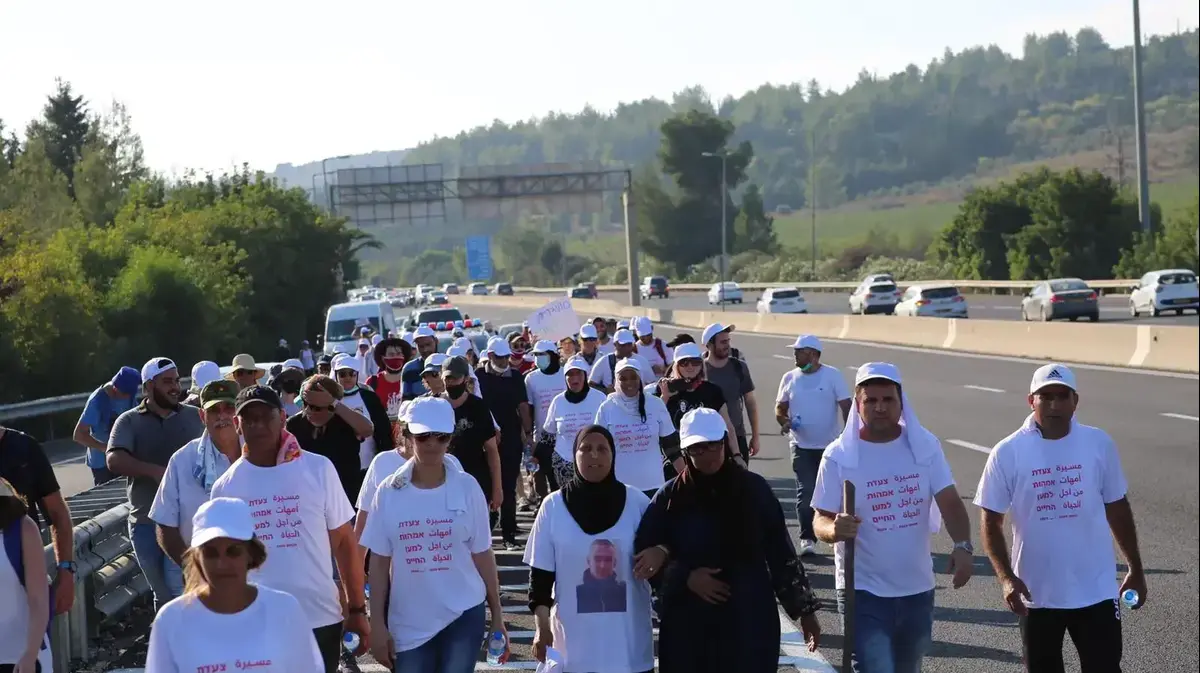- news
- News in Israel
- Criminal news and law
35% of the criminal cases opened to teenagers - in Arab society
The Knesset held a special discussion on violence among youth in Arab society, with the data presented by the Knesset Research Center presenting a difficult picture. 9% of students reported a lack of sense of security in schools, compared to only 3% among Jews. The percentage of their minors in criminal cases is also much higher in Arab society
Tags- The Arabic Community
- The Arab sector
- Teens
- violence
Yoav Itiel
Tuesday, 18 August 2020, 23:15 Updated: 23:33- Share on Facebook
- Share on WhatsApp
- Share on general
- Share on general
- Share on Twitter
- Share on Email
In 2019, about 25,381 criminal cases were opened for minors in Israel, 35% of them for non-Jewish minors, according to data from the Knesset Research and Information Center. The data were submitted this morning (Tuesday) ahead of a joint discussion of the Special Committee on the Rights of the Child, chaired by MK Yosef Jabarin and the Special Committee for the Elimination of Crime in Arab Society, chaired by MK Mansour Abbas. The discussion will deal with the issue of crime and violence among youth.
The discussion also came, among other things, against the background of data that indicate a high proportion of students in Arab education who reported a lack of protection in the school, compared to students in Hebrew education. For example, the proportion of Arab education students in the upper division who reported a lack of sense of protection stands at 9%, and is three times higher than the Jewish data reported.
More on Walla! NEWS
- From Haifa to Jerusalem: The mothers' protest march against violence in Arab society
- A defendant in possession of a weapon shot a man during his trial - and was sent to a year in prison only
- A northern resident was arrested on suspicion of running over and stabbing his ex-wife - and was not charged with attempted murder
- Finally a collection of summer masks that you can breathe with
The chairman of the Committee on the Rights of the Child, MK Yosef Jabarin (Joint List), said that "in the whole of Arab society there is a lack of personal security. It is not only the blood of young Arabs that has been spilled on the streets, ".
MK Jabrin added that "our society craves a sense of personal protection as the government's chatter about violence eradication programs continues unabated." He said, "Hundreds of standards are required of education professionals, as well as social workers to work with youth in need, as well as Educational and social responses. Our youth are not no man's land. "
8% of Arab education students in upper and middle schools reported being exposed to violence in the month leading up to the survey. This is compared with 5% of upper secondary school students in Hebrew education. The report divides the types of violence into three degrees of severity: violence (urgency, beatings, kicks or punches), severe violence (strong blows or by object, threats or extortion) and indirect violence (boycott and spreading rumors). From the survey data, it appears that severe violence and indirect violence were reported at higher rates in Arab education.
More on Walla! NEWS
Violence in Arab society: About 60% of the public do not feel safe in their communities
To the full article
MK Mansour Abbas (Photo: Knesset Spokeswoman)
The survey also showed that Arab students were also more affected by violence on social networks. Students were asked to report their exposure to photo distribution, posting swear words, insults or boycott calls on social media in the month preceding the survey. The data showed that among upper division students, most indices showed higher exposure to such events among students in Arab education.
The proportion of students in Arab education who reported the presence of groups of violent students who threaten to harm other students is significantly higher than that of students in Hebrew education. 13% of students in Hebrew education in the upper divisions reported this, compared with a double rate of about 26% of students in Arab education.
In addition, data from the Research and Information Center showed that in the years 2020-2015, the percentage of non-Jews among the minors whose cases were opened by the police ranged from 37% to 33%. This is despite the fact that their rate among 18-12 year olds in the population is only about 28%.
The gap was also maintained between those prosecuted (in 2017) 33% (2,055) of the minors prosecuted in 2017 were Arabs, but in relation to their proportion in the population, it is a ratio of 2.4, compared to a rate of 1.8 in the Jewish population. The rate of convicted Arab minors - 58.6% of those prosecuted - is significantly higher than the rate of convicted Jewish minors - 36.4%.
Representatives of the relevant government ministries, the Monitoring Committee of the Arab Arabs, the Committee of Heads of the Arab Authorities, the Monitoring Committee for Arab Education, the Aman Center, the State Attorney's Office, the Local Government Center, the Regional Councils Center, the Community Centers Society, the Abraham Fund, the Israel Children Foundation were invited to the meeting. The Bar Association, WIZO, Inside, Clalit Health Services, National Parental Leadership, and the National Anti-Drug Authority. The data was transferred to the Research and Information Center by Danit Avital, a research officer in the Youth Section of the Israel Police, and was handed over to the committee's chair by Linoy Dadon at the Office of the Minister of Internal Security.
- Share on Facebook
- Share on WhatsApp
- Share on general
- Share on general
- Share on Twitter
- Share on Email

